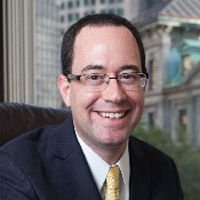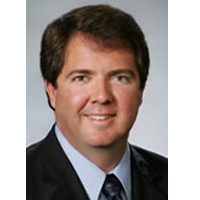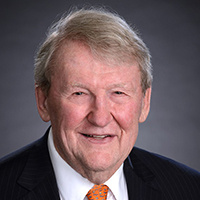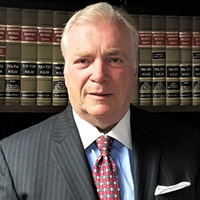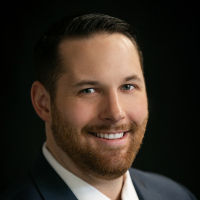 Boston Criminal Lawyers, Massachusetts
Boston Criminal Lawyers, Massachusetts
Sponsored Law Firm
-
 x
x

Click For More Info:
-
Adam P. Beck, M.D., Esq.
25 Marston St Suite 303 Lawrence, MA 01841» view mapAccident & Injury Law Legal Expertise You Can Rely On
By working with lawyers who are also doctors, clients can benefit from advocates who have a deeper understanding of their physical injuries, medical needs, and prognoses.
800-383-8491
Sponsored Lawyers
1-10 of 77 matches
Criminal, White Collar Crime, Felony, DUI-DWI
I help people in all walks of life, from doctors to CEOs to blue-collar workers. Whoever you are, if you're facing criminal charges, everything else pales in importance. I've built up my practice by treating people right and developing a reputation for winning impossible cases. While no attorney can guarantee a win on any particular case, I can promise that I dedicate my full attention to each case that I handle. I understand the importance of what my clients are facing, and the potential impact on their careers, reputations, and families. From street crime to complex white collar charges, I have experience in courtrooms across Massachusetts. I also have extensive background working with clients with mental health and substance abuse issues. If you're charged with a crime in Massachusetts federal or state court, contact me today for a free phone consultation.
(more)Criminal, Divorce & Family Law, Family Law, Divorce
If you're in Suffolk County, Essex County, Norfolk County, Plymouth County, or other surrounding areas, and are looking for truly helpful representation services for civil law or family law middlesex county folks trust, you've come to the right place! Here at the Law Office of Susan Correia-Champa, we focus on delivering expert, responsive and efficient representation for a wide range of cases. We serve individuals, families and businesses in need of highly capable representation for family law and criminal law. The firm specializes in providing top-notch Family Law services. This includes, but are not limited to Divorce and the fair division of assets and/or debt among the spouses, and Child Custody and Support where children are involved. guardian ad litem middlesex county is another service we help our clients with where representation is made in behalf of unborn children, infants, or mentally incompetent individuals, in order to properly protect their interests. We also provide representation for Criminal Law and Civil Litigation. Here at Correia-Champa & Mailhot, we make sure to understand your specific needs by taking the time to listen closely to what each and every client has to say because we understand that each case we handle is unique and that each client's needs differ from the next. Our goal is to provide our clients with responsive, effective and reasonably priced services that truly help in the achievement of their objectives. Here at the Law Offices of Susan Correia-Champa, we have built a strong reputation of putting our clients' needs ahead of our own. We make sure to take care of your needs before our own interests. We understand that the cases we handle can play a major role in the way our clients' futures play out. Hence, we want to be able to play the part which helps them move forward with their lives in a much more positive light than when they first came to us.
(more)Criminal, Divorce & Family Law, Real Estate, Accident & Injury
After graduating from the University of Massachusetts, Rob attended the New England School of Law. He graduated Magna Cum Laude in 1997 and commenced his legal career as a trial attorney, and is experienced in complex civil litigation, criminal law, and real estate. He has tried many criminal and civil cases to completion in the Commonwealth's District and Superior Courts, he has represented clients in the Appeals Court and the Supreme Judicial Court, and he has negotiated numerous settlements and plea bargain arrangements with the Federal Bureau of Investigation and the office of the United States Attorney. Rob is admitted to practice before the state courts of Massachusetts, the United States District Court for the District of Massachusetts and the United States Court of Appeals for the First Circuit.
(more)Accident & Injury, Criminal, Employment, Business, Divorce & Family Law
Mr. Murphy’s legal career emphasizes management labor, corporate, and litigation matters. Selected in the publication of Best Lawyers in America, Mr. Murphy represents many large and small businesses, including Fortune 500 corporations, and serves as counsel to a variety of trade associations as well as major governmental agencies in all areas of labor and employment law. Mr. Murphy has presented and argued hundreds of cases including labor and employment matters in proceedings at the administrative, state, and federal levels. He has successfully argued labor and employment cases at both the state and federal levels, including the Supreme Judicial Court of Massachusetts. Mr. Murphy is a former member of the Governor’s Task Force on Labor-Management Relations and past President of the Boston Chapter of the Industrial Relations Research Association and advisory counsel to the American Arbitration Association. In addition, Mr. Murphy is a member of the Labor Relations Advisory Committee, a select panel of the nation’s leading labor relations attorneys and he has served on a national team of seven lawyers that advises an association of 1,200 hospitals across North America. Mr. Murphy is a former Chairman of the South Shore Chamber of Commerce, former Advisory Director of the Bank of Boston, and a Director of Quincy Mutual Insurance Company and other profit and non-profit corporations and trade associations. In December 1989, Mr. Murphy was honored as a recipient of the Cushing-Gavin Award for management representation in the field of labor relations. In 1996, Mr. Murphy was elected as a Fellow of the College of Labor and Employment Law. Mr. Murphy was one of only fifty practicing attorneys in the nation honored with the Fellowship appointment and was the only attorney in Massachusetts to receive the Fellowship. Mr. Murphy is a graduate of the University of Notre Dame and Suffolk University Law School. He is admitted to the Bars of the Commonwealth of Massachusetts, the District of Columbia, the United States District Court for the District of Massachusetts, the United States Court of Appeals for the First Circuit, and the Supreme Court of the United States.
(more)Divorce & Family Law, Lawsuit & Dispute, Criminal
Attorney Robert N. Launie graduated from Boston College High School in 1974 and Boston College in 1978. After working in-house for a large union masonry company in many different capacities for four years, he decided he would follow his dream of being a litigator and attend law school. Attorney Launie entered New England School of Law, in the evening program while still working his day job for the union masonry company, graduating in 1986 with his entering class. While at New England School of Law, he interned as a Rule 303 prosecutor in the Suffolk County District Attorney's Office handling numerous prosecutions. Attorney Launie was always drawn to trial work and started his own practice doing court-appointed criminal defense work in various district courts, in Middlesex, Norfolk, and Bristol counties. In the early '90’s, Attorney Launie was hired to defend individuals accused of serious crimes and was charged with assembling defense teams for their representation as well as actively participating in the defense of many high-profile cases. Over a 30-year career, Attorney Launie has appeared in both District and Superior Courts, as well as the Federal Courts throughout New England. In 1997, Attorney Launie began working with Attorney Paul V. Marino. After a few years of practicing together, Attorney Launie and Attorney Marino formed Launie & Marino, P.A., in 1999. Together they have expanded their practice to the areas of business litigation, business transactions, family law, as well as counseling and strategic planning for small businesses. Attorney Launie has successfully completed a nationally approved and accredited intensive mediation program, receiving his certificate from the highly respected MWI mediation facility, allowing him to work as both a mediator and conciliator. Attorney Launie has been successful in using his extensive experience and valuable knowledge of litigation aspects in helping to bring litigants to a successful end result in the areas of divorce and business disputes, hopefully showing them how to avoid the costly expense of full litigation. In the Family and Probate Court, Attorney Launie has extensive experience working on divorces that include complicated and sensitive issues like child custody, alimony, and the division of assets. Using his mediation skills, he has been successful in bringing parties together to find equitable and agreeable solutions before trial.
(more)Accident & Injury, Medical Malpractice, Criminal, Construction, Car Accident
Attorney J. Christopher Amrhein, a Top 100 Trial Lawyer, has been providing Massachusetts and the New England area with the highest quality legal representation for over 30 years. Our firm is located in Hingham, MA, and concentrates in Personal Injury Law. We also have extensive experience in General Civil Litigation, Criminal Law, Workers Compensation, Wills/Trusts/Estate Planning, Real Estate, and Divorce. If you or a loved one have been seriously injured due to an auto accident, injury on the job, OUI, slip and fall or you have a question regarding your legal rights, please contact us. At The Law Offices of J. Christopher Amrhein, P.C., we assure you that your case will be taken very seriously, and we promise to vigorously defend your rights.
(more)Immigration, Criminal, Domestic Violence & Neglect, Federal Appellate Practice, Asylum
Criminal, Personal Injury, Wrongful Death
Francis T. O’Brien, Jr. is the founder of O'Brien Law Boston, a criminal law specialty firm. Formerly of counsel/director of criminal practice group for Parker|Scheer, LLP and a founding partner of the Boston trial firm, Wheeler & O’Brien, P.C., Mr. O’Brien brings thirty years of experience in the field of criminal defense. A member of the Massachusetts and Florida state bars and the federal bar in Massachusetts, Mr. O’Brien has also represented clients on criminal state and federal matters in more than twenty states. Mr. O’Brien’s practice concentrates on all areas of criminal defense, including drug cases, white collar, crimes of violence, restraining orders, fraud, motor vehicle offenses and operating under the influence. He has extensive experience in issues relating to search and seizure as well as issues arising in the defense of operating under the influence. Having successfully handled thousands of cases of individuals charged with operating under the influence and other motor vehicle offenses, Mr. O’Brien also has considerable experience with related issues involving license suspensions and requests for license reinstatement. He frequently represents clients before the Registry of Motor Vehicles and Board of Appeal for the Registry. Mr. O’Brien also has extensive state appellate experience, having argued before the Supreme Judicial Court and Appeals Court of Massachusetts as well as the Supreme Court of New Hampshire. On the federal level he is admitted to practice before the First, Second, Fourth and Seventh Circuit Courts of Appeal.
(more)Divorce & Family Law, Estate, Criminal
Christopher E. Sawin is Founder and Principle Attorney of Sawin Law, P.C., where he concentrates his practice in family law, probate, estate planning, and veterans’ law. His practice includes the representation of individuals in some of the most difficult of life’s transitions, including divorce, paternity actions, modification of agreement and judgements, custody disputes, prenuptial agreements, enforcement proceedings, restraining orders, estate disputes, discharge upgrades, and military disability appeals. To serve clients with the upmost quality representation, Mr. Sawin draws upon his experience, training, and education to reach the best possible result for every client. His analytical approach and hard-earned reputation for integrity and discretion ensures quality results, keeping the client’s best interest at the forefront of his practice. Mr. Sawin believes that zealous advocacy combines an understanding of the law with a creative use of intellect, negotiation, reasoned decision-making, and effective implementation of experts. Previously, Mr. Sawin was a law clerk to Chief Justice John D. Casey of the Massachusetts Probate and Family Court and also represented indigent families through his participation of the Suffolk Family Advocacy Clinic in a variety of issues in the Greater Boston area. Prior to attending law school, Mr. Sawin served in the United States Marine Corps where he deployed to Iraq during Operation Iraqi Freedom and aboard the USS Iwo Jima with the 26th Marine Expeditionary Unit. He currently volunteers a portion of his legal services to indigent military veterans and their families with the unique legal challenges they face before the U.S. Department of Veterans Affairs and with state law issues.
(more)Criminal, Divorce & Family Law, Contract
In 1999, he became an administrator of one of the first charter schools in the state of Florida. He went on in his career, to be a principal and school district administrator. He has been part of hundreds of child studies, and thousands of students' educational plans. He has trained teachers, principals and superintendents on compliance with special education laws, bullying prevention, student discipline procedures and curriculum innovations. He has supported school and school districts in student services' best practices. He has been a school board member, developing policy and performing governance of a school district. Will has been a member of local, state and federal committees that set policy regulations for schools. He is a certified evaluator for school accreditation. He utilizes all of his experience when he represents his clients. With such a broad knowledge in the educational field, Will is able to represent his clients in the most effective ways.
(more)


 Adam Beck Lawrence, MA
Adam Beck Lawrence, MA AboutAdam P. Beck, M.D., Esq.
AboutAdam P. Beck, M.D., Esq. Practice AreasExpertise
Practice AreasExpertise